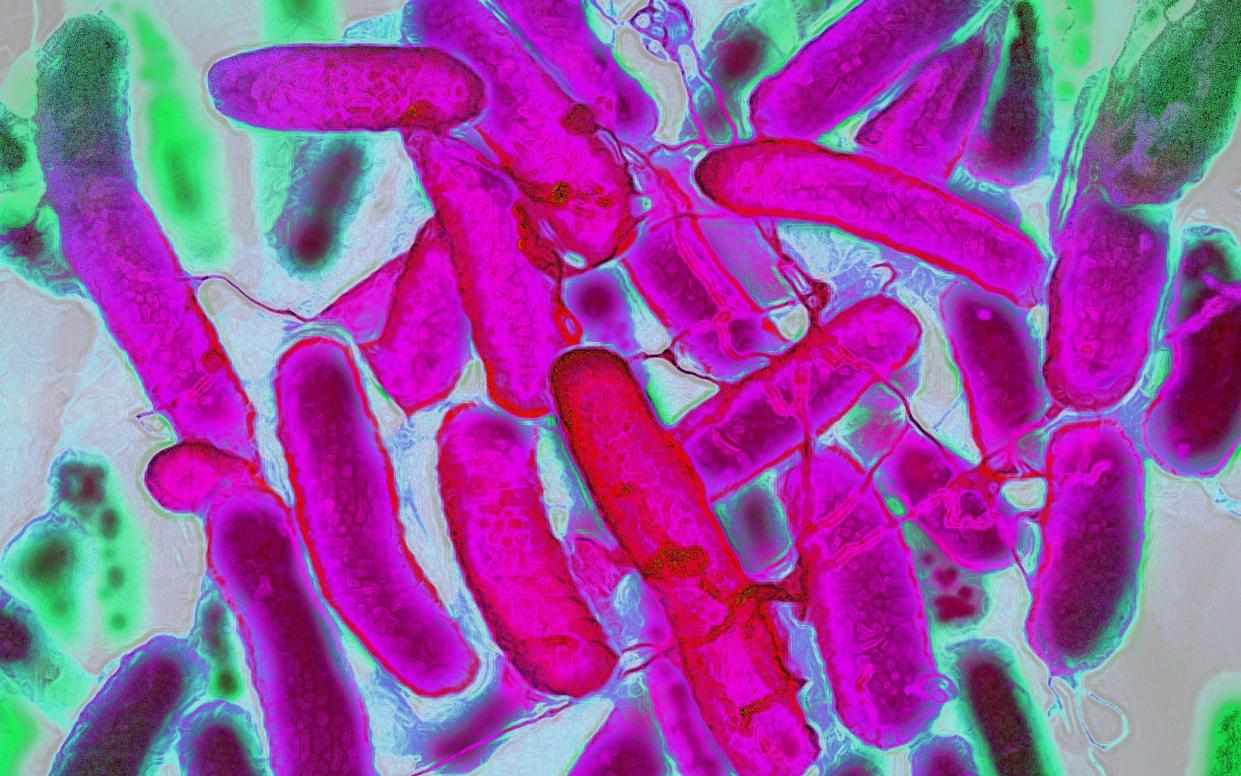Asda sued by family of girl, 11, struck down by E. coli-infected chicken salad sandwich

The family of an 11-year-old girl who was infected with E. coli after eating a chicken salad sandwich is suing Asda.
The girl has been on dialysis for three weeks and is at risk of permanent kidney damage, according to her lawyers, who are also representing a separate man suing Tesco after being taken to hospital during the outbreak.
The 11-year-old from the North West developed a serious complication called haemolytic uraemic syndrome (HUS), where blood clots form and cause damage to kidneys and other organs.
Lawyers from legal firm Fieldfisher said it had issued letters of its intention to take legal action against both Tesco and Asda for breach of the Consumer Protection Act over the own-brand sandwiches that had made customers seriously ill.
It comes a day after the first person was confirmed to have died in the E. coli outbreak on Thursday.
Health officials said two people had died within a month of being infected with a strain of E. coli called Stec O145, although the second is not believed to be linked to the outbreak.
Investigators at the UK Health Security Agency believe the outbreak, which has affected at least 275 people so far, is linked to the salad leaves used in sandwiches.
‘Part of an online delivery’
“The girl, aged 11, developed the serious condition haemolytic uraemic syndrome, which attacks the kidneys and has been on dialysis for three weeks,” Fieldfisher said.
“She was discharged home two days ago but could be at risk of permanent kidney damage.
“Her mother bought three of the sandwiches as part of an online delivery.”
Harvinder Kaur, legal director at the law firm, said she had issued a separate letter to Tesco on behalf of a man from the South East who was also taken to hospital with E. coli symptoms after eating Tesco-branded sandwiches containing salad.
“Luckily, this client did not go on to develop HUS and is now home, but for a time he was seriously ill,” she said.
“Under the Act, companies producing food must ensure it is safe to eat.
“If it causes illness, it is a breach of their duty and those injured are eligible to claim compensation, not least to fund possible ongoing medical care.
“My client was a regular shopper at Tesco, buying his lunch there most days since it was very close to his work.”
Several food manufacturers have recalled dozens of sandwiches, wraps and salads sold in major supermarkets and retail chains because of the spread of E. coli.
At least 122 people have been admitted to hospital for treatment since the start of the outbreak.
Darren Whitby, head of incidents at the Food Security Agency, said it believed a type of lettuce used in sandwich products was the likely cause of the outbreak.
He added: “Although we are confident in the likely source of the outbreak being linked to lettuce, work continues to confirm this and identify the root cause of the outbreak with the growers, suppliers and manufacturers so that actions can be taken to prevent a re-occurrence.”
E. coli is a diverse group of bacteria that are normally harmless and live in the intestines of humans and animals.
However, some strains produce toxins that can make people very ill, such as shiga toxin-producing E. coli (Stec), which is the strain involved in this outbreak.
People infected with Stec can suffer diarrhoea, with or without blood, stomach cramps and fever.
Symptoms can last up to two weeks in uncomplicated cases, but some patients, mainly children, are at risk of developing HUS, which can lead to kidney failure.
A small proportion of adults may develop a similar condition called thrombotic thrombocytopenic purpura.
Symptoms to watch for
Stec is often transmitted by eating contaminated food but can also be spread by close contact with an infected person, as well as direct contact with an infected animal or where it lives.
People are advised to call NHS 111 or contact their GP surgery if they are worried about a baby under 12 months, a child stops breast or bottle feeding while they are ill, a child under five has signs of dehydration such as fewer wet nappies, and if older children or adults still have signs of dehydration after using oral rehydration sachets.
Help should also be sought if people are being sick and cannot keep fluid down, there is bloody diarrhoea or bleeding from the bottom, diarrhoea lasts more than seven days, or vomiting for more than two days.
An Asda spokesman said: “We have not yet received any letter from Fieldfisher regarding these claims. As soon as we do, we will review the details of the claim as a matter of urgency.”
Tesco has been contacted for comment.


